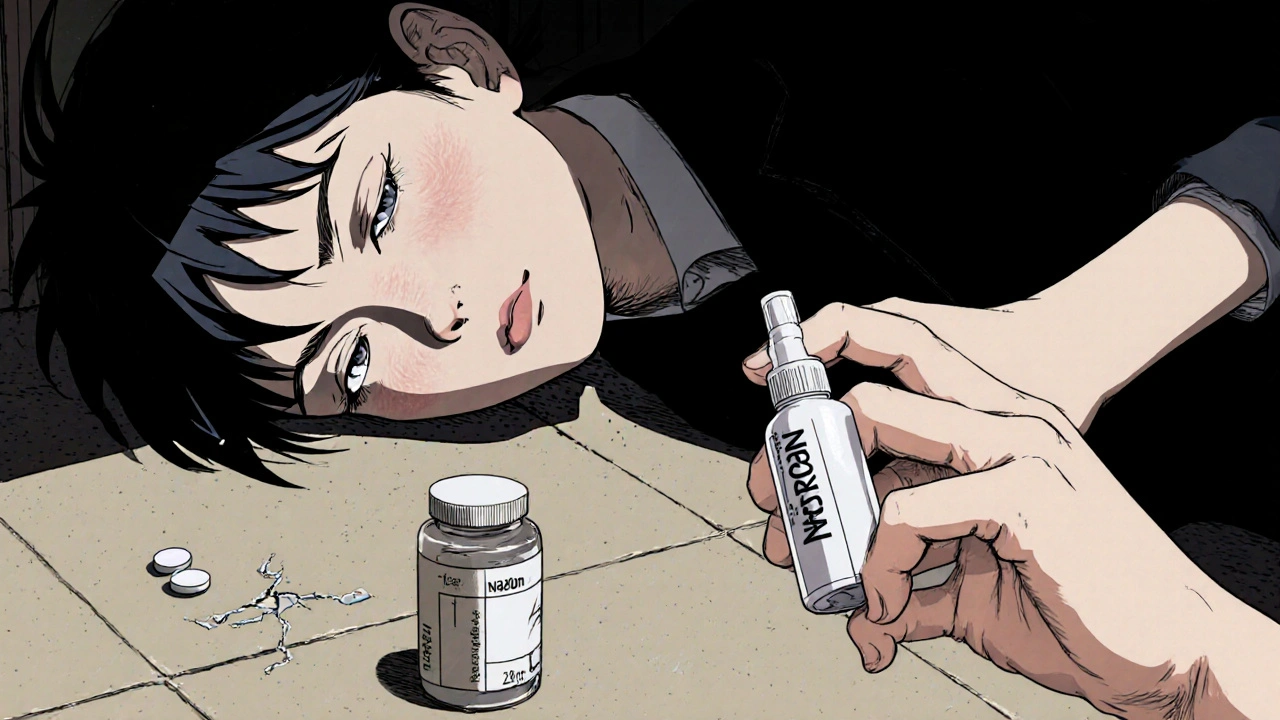Drug Overdose Warning Signs: What to Watch For and When to Act
When someone is experiencing a drug overdose, a life-threatening reaction to taking too much of a substance, often opioids, alcohol, or prescription meds. Also known as toxic overdose, it happens when the body can’t process the amount ingested, and vital functions like breathing slow or stop. It’s not always obvious—some people seem sleepy, others are unresponsive or turning blue. You don’t need to be a doctor to spot the signs. If someone’s not waking up, their lips are pale or blue, or their breathing is shallow or irregular, it’s not just "being drunk"—it’s an emergency.
Opioid overdose, a common and deadly form of drug overdose caused by drugs like heroin, fentanyl, oxycodone, or even misused prescription painkillers is especially dangerous because it shuts down breathing. Many people don’t realize how fast it can happen—even one extra pill or a cut batch of street drugs can be fatal. Naloxone, a medication that reverses opioid overdose by blocking opioid receptors in the brain is available without a prescription in many places and can bring someone back to life within minutes. But it only works if you act fast. The sooner you give it, the better the chance of survival.
Other drugs like benzodiazepines, alcohol, or stimulants like cocaine and meth can also cause overdose, but the warning signs change. With alcohol or sedatives, the person may be vomiting, confused, or have cold, clammy skin. With stimulants, you might see seizures, chest pain, or extreme agitation. The common thread? Any sudden change in consciousness, breathing, or skin color means stop and call for help. Don’t wait for a heartbeat to stop. Don’t assume they’ll "sleep it off." People die waiting for someone else to act.
Most overdoses happen at home, alone, or with friends who don’t know what to do. That’s why knowing the signs isn’t just helpful—it’s critical. You don’t need to be trained to use naloxone. The kits come with simple instructions. You don’t need to be sure it’s opioids to try it—it won’t hurt someone who didn’t take them. And calling 911 is never a bad move. Emergency responders won’t arrest someone for overdose—they’re there to save them.
In the posts below, you’ll find real stories and expert advice on what triggers overdoses, how to recognize them in different people, and what tools and resources can help prevent them. Whether you’re worried about a loved one, using medication yourself, or just want to know how to help, these guides give you the facts without the fearmongering. This isn’t about judgment—it’s about knowing what to do when seconds matter.
Signs and Symptoms of Medication Overdose You Should Recognize
Learn the key signs of medication overdose - from opioid to stimulant reactions - and what to do immediately if someone is overdosing. Early recognition saves lives.

